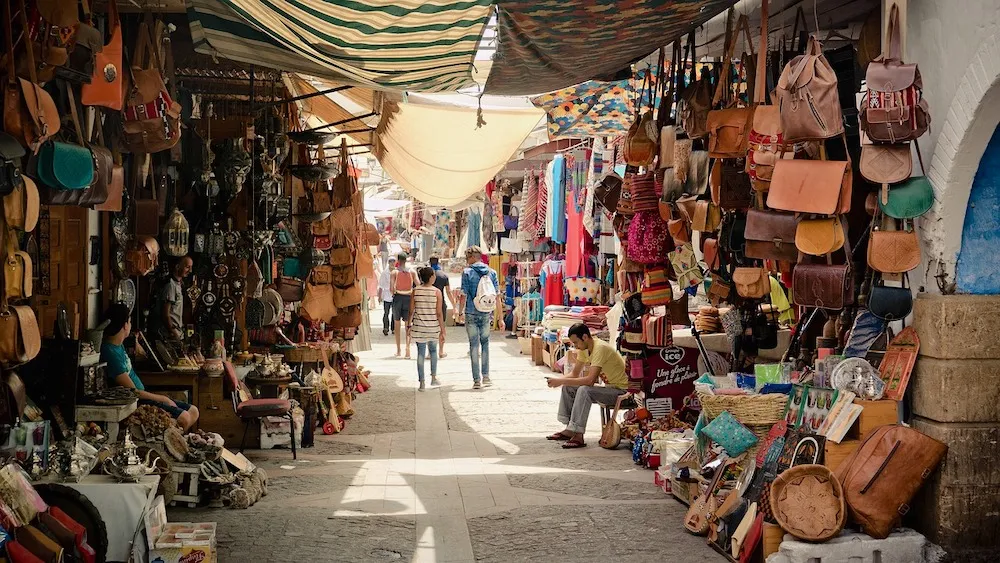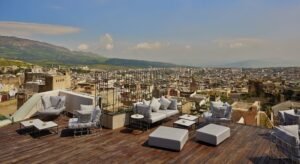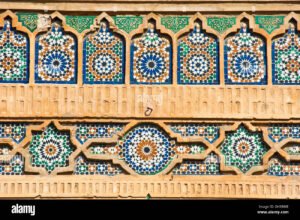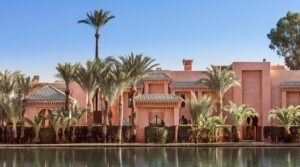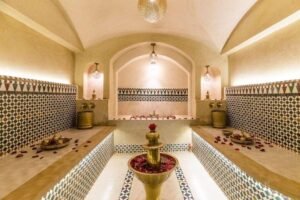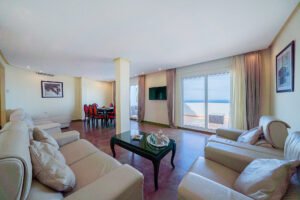Is Morocco a Safe Country to Travel To? A Complete Guide for Tourists
Morocco is a land of rich history, diverse landscapes, and vibrant culture. From the bustling souks of Marrakech to the serene beaches of Essaouira and the breathtaking Atlas Mountains, the country offers a unique blend of old-world charm and modern luxury. As one of the most visited destinations in North Africa, Morocco attracts travelers seeking adventure, relaxation, and business opportunities. So, is morocco a safe country to travel to ? Before planning a trip, many visitors ask: Is Morocco a safe country to travel to? Safety concerns often arise due to unfamiliarity with the region, cultural differences, or misleading portrayals in the media. While no destination is entirely risk-free, Morocco is generally a safe country for tourists, provided they take standard precautions. This guide provides a detailed breakdown of safety in Morocco, covering everything from crime rates and scams to health precautions and local customs. Whether you are traveling solo, with family, or on business, this article will equip you with essential knowledge to make your Moroccan experience safe and enjoyable. Don’t wait! Get the answers you need now by chatting with us on WhatsApp.1. General Safety in Morocco: What Travelers Should Know
Morocco is one of the safest destinations in North Africa, thanks to its political stability, well-developed tourism infrastructure, and strong law enforcement presence. Millions of tourists visit annually without issues, enjoying Morocco’s stunning landscapes, historical sites, and luxury accommodations.Crime Rates in Morocco
While violent crime is rare, petty crimes such as pickpocketing and scams can occur in crowded areas, particularly in popular tourist hotspots like Marrakech, Fez, and Casablanca.- Pickpocketing: Common in busy markets, train stations, and medinas. Keep valuables secure and avoid carrying large amounts of cash.
- Scams: Some individuals pose as guides or offer unsolicited assistance, then demand payment. Politely decline and use only official services.
- Mugging: Rare but can happen in isolated areas at night. Stick to well-lit, busy streets and avoid walking alone in unfamiliar locations.
Tourist Police Presence
Major tourist cities like Marrakech, Fez, Casablanca, and Rabat have a dedicated tourist police force to ensure visitor safety. These officers patrol busy areas and are available to assist travelers facing scams, theft, or other issues. To contact the police, dial 19 for emergency services in urban areas and 177 for the Royal Gendarmerie in rural areas.2. Is Morocco a Safe Country to Travel to for Solo and Female Travelers?
Morocco is a popular destination for solo travelers, including women, but it requires an understanding of local customs and cultural norms to ensure a comfortable experience.Safety Tips for Solo Travelers
- Choose reputable accommodations with good security, such as luxury hotels, riads, or international chains.
- Avoid walking alone in deserted streets at night, particularly in the medina.
- Be cautious when interacting with strangers offering assistance.
Safety for Female Travelers
While Morocco is welcoming, some women may experience unwanted attention, particularly in urban areas. Most interactions are harmless, but being prepared helps ensure a stress-free trip.- Dress Modestly: While Morocco is modern in many ways, covering shoulders and knees can help reduce unwanted attention.
- Confidence Matters: Walking with confidence and avoiding prolonged eye contact can discourage street harassment.
- Join Group Tours: If traveling alone feels overwhelming, organized tours offer a structured and safer experience.
3. Safe and Risky Areas in Morocco – Is Morocco a Safe Country to Travel To?
Safe Destinations for Tourists
Morocco’s most popular cities are generally safe, provided visitors remain cautious in crowded areas.- Marrakech: Safe but be mindful in the medina and souks.
- Casablanca: Safe for business travelers, but be cautious at night in less touristy districts.
- Fez: Stunning but known for aggressive street vendors; use a guide if necessary.
- Rabat: The capital city is one of the safest, with a relaxed atmosphere.
- Tangier: Popular among European travelers; relatively safe but avoid isolated beaches at night.
Areas to Avoid at Night
- Deserted alleyways in the medinas of Marrakech and Fez.
- Outskirts of large cities where there is little tourist activity.
- Unregulated areas near ports or train stations in Casablanca and Tangier.
4. Common Tourist Scams and How to Avoid Them
Taxi Overcharging
Many taxi drivers refuse to use meters or charge excessive rates. Solution: Use registered taxis with meters or pre-negotiate the fare before starting the ride. Alternatively, use ride-hailing apps like Careem.Fake Guides
Some individuals pose as guides and demand money after offering unsolicited tours. Solution: Hire only licensed guides through hotels or official tourism offices.False Shops and Overpriced Goods
Some vendors lure tourists into shops with the promise of “special prices” but overcharge them. Solution: Bargain respectfully and compare prices before making purchases.5. Health and Hygiene Tips for Morocco
Drinking Water and Food Safety
- Stick to bottled water and avoid drinking from taps or fountains.
- Avoid ice in drinks unless you are in a high-end restaurant or hotel.
- Eat at busy, well-reviewed restaurants to ensure food freshness.
Medical Facilities and Travel Insurance
Morocco has excellent private clinics in major cities, but travel insurance is highly recommended to cover medical emergencies. Pharmacies are well-stocked, and many medications are available over the counter.6. Safety Tips for Business and Luxury Travelers
For those visiting Morocco for business or leisure, prioritizing comfort and security can enhance the experience.- Choose High-End Hotels: Luxury hotels like La Mamounia in Marrakech, Four Seasons in Casablanca, and Royal Mansour in Rabat offer top-tier security and comfort.
- Private Transfers: Avoid public transport and use private chauffeur services for convenience and safety.
- Exclusive Experiences: Enjoy private desert tours, luxury yacht charters in Tangier, and exclusive dining experiences for a hassle-free trip.
7. Is Morocco a Safe Country to Travel To?
Yes, Morocco is a safe and welcoming destination for tourists, offering a mix of adventure, history, and luxury. While petty crime exists, serious incidents are rare, and travelers who take standard precautions can explore with confidence. By staying aware of your surroundings, choosing reliable services, and respecting local customs, you can enjoy everything Morocco has to offer—from its rich cultural heritage to its breathtaking landscapes—without compromising safety.Planning Your Moroccan Getaway?
- Luxury Stays: La Mamounia (Marrakech), Four Seasons (Casablanca), Riad Fes (Fez).
- Gourmet Dining: Le Jardin (Marrakech), Rick’s Café (Casablanca), Dar Yacout (Fez).
- Private Tours: Sahara desert experiences, guided medina explorations, Atlas Mountain treks.



